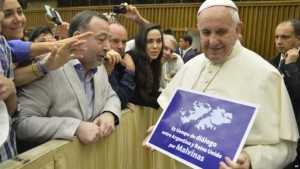What is the best word to describe our present moment? You might be tempted to reach for “unprecedented”, or perhaps “extraordinary”.
But here’s another adjective for our times that you may not have heard before: “hingey”.
It may not be a particularly elegant term, but it describes a potentially profound idea: that we may be living through the most influential period of time ever. And it’s about far more than the Covid-19 pandemic and politics of 2020. Leading philosophers and researchers are debating whether the events that occur in our century could shape the fate of our species over the next thousands if not millions of years. The “hinge of history” hypothesis proposes that we are, right now, at a turning point.
Is this really plausible?
https://www.bbc.com/future/article/20200923-the-hinge-of-history-long-termism-and-existential-risk
Presented by Romano Pisciotti

